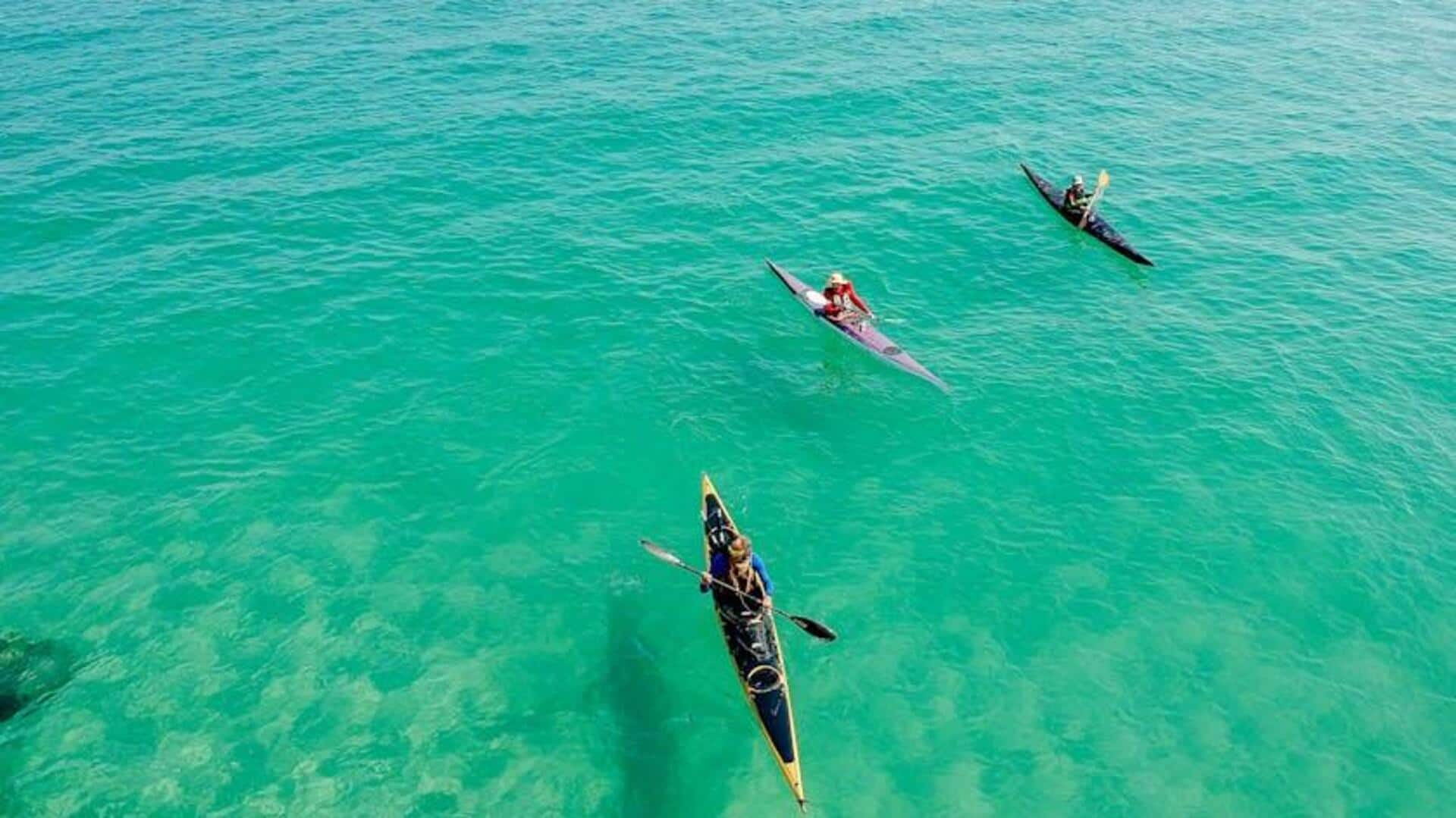
Kayaking enthusiasts: These are the top spots in Zambia
What's the story
With its remote rivers and stunning views, Zambia is an ideal place to go kayaking. The country's rivers give the perfect adventurous setting to both, the novice and experienced kayakers. With the variety of wildlife, lush landscapes, and tough rapids, Zambia's rivers guarantee an unforgettable trip. Here are some of the best places to go kayaking in Zambia and what makes them special.
Zambezi
Exploring the Zambezi River
One of Africa's most famous waterways, the Zambezi River offers powerful rapids and stunning scenery. Kayakers can enjoy a thrilling ride through sections like Batoka Gorge where the river cuts through steep cliffs. The river also has calmer stretches ideal for observing wildlife like elephants and hippos along the banks. One must be prepared for varying water conditions while exploring this iconic river.
Kafue
Discovering the Kafue River
The Kafue River is another amazing destination for kayaking lovers in Zambia. The river flows through Kafue National Park, giving you a chance to witness variety of wildlife such as antelope and crocodiles. The river's gentle flow makes it an ideal place for beginners who want to have a quiet paddle while appreciating the beauty around them. Paddlers must beware of park regulations to have a safe experience.
Luangwa
Venturing into Luangwa River waters
If you want a more secluded kayaking adventure, you could try the Luangwa River. Located in remote eastern Zambia, this river is famous for its wildlife, including huge populations of hippos and crocodiles. This would be a great challenge for experienced kayakers who want solitude among nature. The surrounding area is filled with dense forests and open plains, making this hidden gem even more attractive.
Safety tips
Tips for safe kayaking adventures
Safety is paramount when embarking on any kayaking adventure in Zambia's remote rivers. Always wear a life jacket and carry essential safety gear such as whistles or flares in case of emergencies. It's advisable to travel with experienced guides who are familiar with local conditions and can provide valuable insights into navigating these waters safely, while respecting local wildlife habitats.